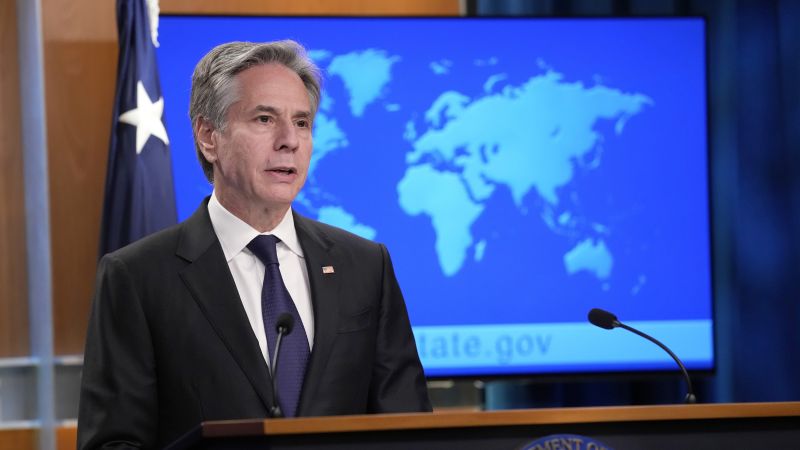The US State Department is set to release a new cybersecurity strategy aimed at countering Russian and Chinese influence in the developing world and preventing interference in elections. With many countries holding elections in 2024, the strategy highlights the vulnerability to cyber-enabled interference and the need for continuous efforts to expose hackers and propagandists. The State Department has communicated to Russia and China that interference in democratic processes is unacceptable, with Secretary Blinken stating that evidence of Chinese attempts to influence US elections has been observed. The strategy focuses on rallying support for tech policies and isolating autocratic regimes that control the flow of information.
The new State Department strategy emphasizes the importance of cybersecurity for thriving economies and democracies. It highlights the potential impact of cyberattacks, such as ransomware attacks crippling economies or governments using spyware to target dissidents. US officials aim to promote an affirmative vision for cyberspace that rejects digital repression, building on efforts to discourage the use of technology from autocratic countries like Russia and China. The State Department will unveil the strategy at the RSA Conference in San Francisco, a major tech forum, outlining principles that diplomats will use to advance the agenda.
US officials believe that repressive regimes, including China, are inadvertently aiding in the push against digital repression by misusing cyber tools to threaten peace, security, and human rights. The narrative against authoritarian control of the internet is gaining traction, particularly in the developing world. The strategy aims to expand the support for an affirmative vision for cyberspace and advocate against the use of technology from authoritarian countries like Russia and China. The US is stepping up efforts to convince allies and partners to reject technology that may pose security risks or enable surveillance by Moscow or Beijing.
Highlighting the impact of cyber threats on allies and partners, the strategy points to cases like Costa Rica, which suffered a ransomware attack by Russian-speaking hackers in 2022. The US provided aid to help Costa Rica recover from the attack, which disrupted key government agencies. In response to US advice, Costa Rica chose not to use Chinese technology in its 5G mobile networks, a decision that has caused tension with Beijing. Despite successes in some regions, Chinese telecom firms have secured contracts in Africa, posing challenges in countering Chinese influence. The State Department acknowledges the need for continued efforts to combat the attraction of Chinese initiatives like the Belt and Road projects that aim to expand influence globally.
The State Department’s strategy underscores the importance of countering cyber threats from Russia and China, particularly in the context of upcoming elections worldwide. By advocating for an affirmative vision for cyberspace, the US aims to rally support for policies that reject digital repression and promote cybersecurity. Efforts to persuade allies and partners to avoid technology from autocratic countries and prioritize secure alternatives are key elements of the strategy. The narrative against authoritarian control of the internet is gaining momentum, with the hope that more countries will align with the US vision for a secure and democratic cyberspace. Despite challenges, US officials are committed to countering Russian and Chinese influence and advancing cybersecurity globally.















